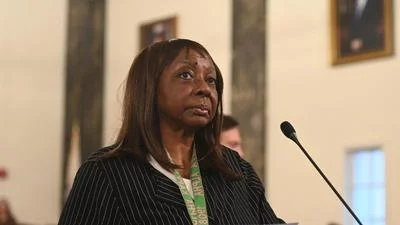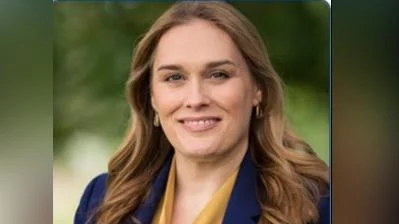Concerned parents in support of not eliminating the Invest in Kids Scholarship Fund. | Facebook / St. Nicholas Cathedral School
Concerned parents in support of not eliminating the Invest in Kids Scholarship Fund. | Facebook / St. Nicholas Cathedral School
Local schools are amping up the pressure to keep the Invest in Kids Scholarship Fund intact.
The fund, which provides backing for around 9,000 needy children to attend private schools, is scheduled to sunset on Dec. 31 if not extended by the General Assembly. Parents from St. Nicholas Cathedral School (SNCS) in Chicago recently traveled to the State Capitol to lobby their representatives.
“Yesterday the parents of some of our students traveled to Springfield,IL to support and ask for an extension of the scholarship program for students who need financial support for their children's education,” St. Nicholas Cathedral School based in Chicago said on Facebook. “It was an unforgettable experience to influence the decision of Illinois Congress members who represent our district.”
SNCS thanked those parents who were in Springfield and urged the public to reach out to their respective lawmakers to support the program.

“Many of our students receive scholarships through the Invest in Kids Act. This week, legislators will vote on whether or not this opportunity for our students will remain. State Representative Lilian Jiménez State Representative Eva-Dina Delgado Omar Aquino,” SNCS said. “We are calling on everyone to help SNCS by contacting your legislator TODAY! Please fill out this quick survey by clicking the link below to support this program so that our students can keep their scholarships! If we do not do this, they can vote to take these funds away.”
Several members of the Illinois General Assembly have banded together to add an extension to the program. The Tax Credit Scholarship Program allows for donors to receive a tax benefit for donating to a state-maintained scholarship program for private schools for low-income families.
“We the undersigned members of the Illinois General Assembly are expressing our support of the extension of the ‘Invest in Kids’ Scholarship Fund,” the signatories of a letter requesting to extend the program wrote, according to Prairie State Wire. “This is a shared priority of both caucuses which benefits the education of underprivileged children.” “We look forward to the sunset of this program being extended.”
The letter was signed by all Republican House members except State Reps. Tony McCombie (R-Savannah), Jeff Keicher (R-Sycamore), Dave Severin (R-Benton), Charlie Meier (R-Okawville), Norine Hammond (R-Macomb), Wayne Rosenthal (R-Morrisonville), Mike Marron (R-Fithian), and Amy Elik (R-Alton).
SENATE BILL 3618 would “protect and expand the Invest in Kids Act.” The bill is sponsored by State Sen. Antonio Munoz (D-Chicago). That bill would end the sunset of the program altogether and would increase the tax benefit to 100% of that donated. The bill would also provide super-priority status to students in the program, allow businesses to designate funds for specific schools, open the program to pre-k students, and allow schools to give more partial scholarships.
State Rep. Chris Miller (R-Oakland) took to the House floor to defend the Invest in Kids Scholarship Fund.
“I want to continue voicing my enthusiastic support of our Illinois Invest in Kids Scholarship Fund,” Miller said. “As many of our colleagues have said, this issue isn't about politics. It's not about Democrats and Republicans. It's not about left or right. It's not about liberal or conservative, but it's about the children, specifically underprivileged children and the children needing additional academic support.”
Miller added that the “General Assembly should be equally enthusiastic and extending and supporting the Invest in Kids Scholarship fund." He urged that they sign a letter of support for the program.
“These scholarships can benefit students who are academically gifted, but it also benefits nearly 1,000 students who have unique academic needs and learning disabilities," Miller said. "This program is incredibly diverse, with 60% of the scholarship recipients being non-white. This program is need-based. Two-thirds of the scholarship recipients have an average family household income at a moderately above federal poverty level. 70% of their scholarship recipients meet federal guidelines to be eligible for free or the reduced lunch program. These people who donate to this scholarship fund are enthusiastic about supporting the education of underprivileged children.”






 Alerts Sign-up
Alerts Sign-up